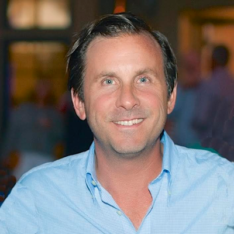Government Has Forced Culinary Genius Into Paper and Plastic

“I grew up in St. Clair, Michigan, flipping eggs at my parents’ diner.”
Those are the words of world-renowned chef Grant Achatz in his excellent 2011 book co-authored with Nick Kokonas: Life, On the Line: A Chef’s Story of Chasing Greatness, Facing Death, and Redefining the Way We Eat.
Achatz’s ambition from a young age was to “own a great restaurant, a famous one.” Ambition fulfilled. Achatz and Kokonas opened Chicago-based Alinea in 2004, followed by Next in 2011. Any discussion of important restaurants around the world includes those created by Achatz. But in so many ways we’re getting ahead of ourselves.
That we are is a mistake all too many make in describing, or worse, criticizing success. Too often the focus is on what someone is as opposed to what it took for them to become who they are. It’s possibly a made up quote, but in the film Rocketman, young Reggie Dwight is told by a musician that “you must kill the person you were born to be.” His point was that Reggie was supposed to spend all of his unremarkable days in Pinner, occasionally backing up front-of-stage musicians, but utlimately amounting to nothing. And so Reggie morphed into Elton John, who went on to global stardom.
Who knows, but it seems in telling readers about his early life in a diner, Achatz was explaining that he too “killed” the person he was supposed to be so that he could be Grant Achatz, World Famous Chef. Needless to say, it wasn’t easy.
Upon matriculating to Culinary Institute of America (CIA), Achatz recalls that quite unlike classmates who were “going to bars and partying,” and who viewed their classes at CIA as “an inconvenient interruption of their leisure activities,” he “spent each night reading cookbooks.” For the greats, it seems their free time is all about the work precisely because it isn’t.
Achatz graduated on CIA’s Dean’s List, then worked for the great Charlie Trotter for less than a year. Trotter was incensed when he moved on, told Achatz to not expect any reference letters, but it didn’t much matter. Achatz had already written 14 letters to Tom Keller with an eye on working inside one of the world’s most important kitchens, French Laundry.
Funny about Keller is that once he offered Achatz a job, the plainly thrilled chef on the make didn’t even ask about salary. As Achatz explained it, “I didn’t care.” When the work is something you can’t not do, the money is secondary.
Achatz eventually returned to Chicago. He worked for a time at a restaurant called Trio out in Wheeling, IL, then as previously mentioned opened world famous Alinea.
Achatz noted in Life, On the Line that “calling in sick” was never an option for him when it came to his job, but to be fair, those who love what they do never call in sick. It says here that the previous truth explains why professional athletes so often play hurt. While it’s possible that they’re brave and tough, it seems the more likely truth is that they can’t imagine not doing what reinforces their genius. Achatz cooks all the time because it’s “what I do. It just makes me really happy. That’s all there is to it.”
All of which brings us to the lockdowns that haven’t wholly shut down restaurants, but that have reduced them to takeout spots. About takeout food, most chefs will at least privately say that they’re not fans of it. Even food-unsophisticated readers know why. Stating the obvious, it’s not nearly as good as plated meals are.
Interesting about this is that Danny Meyer made plain in his memoir Setting the Table that his restaurants generally don’t take tables of 8 or more unless the menu is pre-set. They don’t simply because they can’t maintain the food quality for everyone when the number of different orders is so high.
Imagine then, what happens to food that’s cooked, only to be picked up. Pizza travels well, but seemingly most other food items are compromised by the travel from restaurant to home as plastic covering meant to keep food hot essentially wilts it through excess steam. And if not covered, the food arrives cold.
Back to Achatz, cooking once again makes him “really happy,” but one imagines a big driver of the happiness is the creation of an extraordinarily unique dining experience. With Alinea, the experience is wholly on another level with twenty+ courses. Howard Johnson’s, this is not.
So while Alinea isn’t shut down at the moment, while it offers pickup meals that surely advance the concept, it’s hard not to think a little of Achatz is dying inside? Indeed, he was once willing to die for his work. Achatz was diagnosed with cancer of the tongue in 2008, and the consensus view among doctors was that he should have his tongue removed to save his life. Except that a removal of the tongue would have ended the work that was and is his life. Luckily, he found a doctor who disagreed with the consensus.
But the main thing is that to continue doing what gave his life so much joy and purpose, Achatz risked his life. Creating an amazing dining experience plainly means a great deal to him, but a political reaction to a virus means Achatz has to prepare pick-up meals. Without presuming to speak for him, or without insinuating that there’s any knowledge of how he actually feels, it’s not unreasonable to assume that Achatz (and other chefs like him) desperately misses doing that which made his childhood dream of a “great” and “famous” restaurant a reality.
So while this column once again won’t presume to speak for Achatz, it will conclude that politicians missed the boat completely in forcing restaurants into takeout concepts. For all too many chefs, this one-size-fits-all solution insulted and continues to insult their genius. This is about much more than money when we remember the sacrifices made by Achatz to keep doing what he loves. Politicians have told someone who risked his life in order to keep serving customers in inimitable fashion that he could take his genius and wrap it in plastic. How very insulting.
Reprinted from RealClearMarkets











